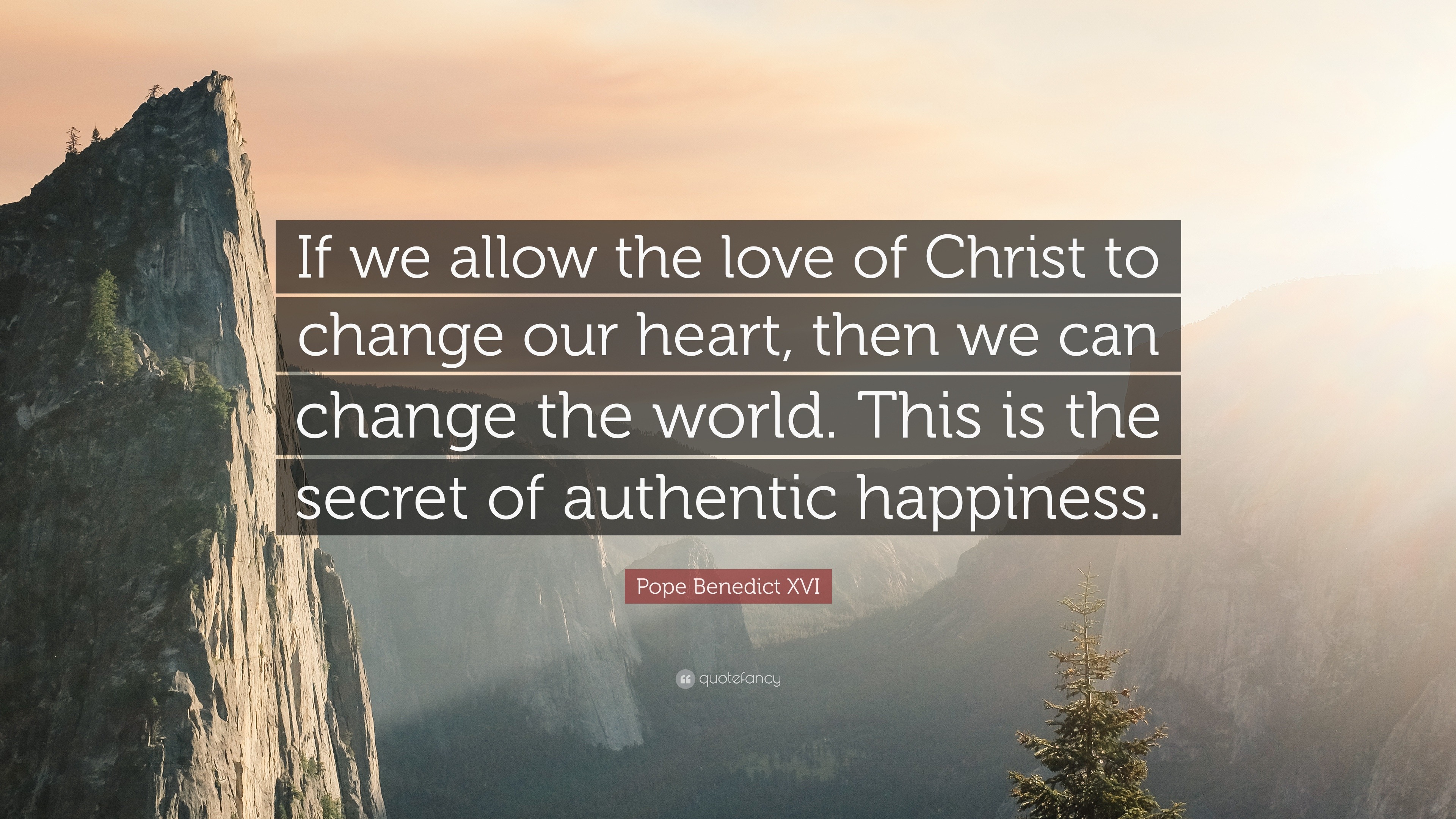Today is Gaudete Sunday! The third Sunday of Advent is known as "Gaudete!" or "Rejoice!" Sunday because it is considered the "past-the-halway-point" Sunday of Advent. We are so close to the end of Advent, which means we are so close to Christmas - the celebration and remembrance of Christ's first appearance in the world after 9 months in His mother's womb. We rejoice because we know that the Messiah is near - He is close, closer than ever as we accompany the Israelites awaiting Him through the readings of the Liturgy from the Old Testament.
My pastor gave another stirring homily today, and its major theme was the belief that we have as Christians that joy does not mean the same thing as happiness. That is to say, joy can be present and real, even in the midst of sorrow. How? Well, joy is a fruit of the Holy Spirit. As such, it comes in our lives as a result of our communion with God and lived relationship with Him in the life of grace. Joy is rooted in grace - it is determined by our closeness with the Lord, rather than by our feelings in the present moment like happiness is. My pastor connected this (as I was already doing in my brain, haha!) with the movie "Inside Out" and the way the film culminates in Joy and Sadness realizing that they do not have to compete; but rather, their cooperation actually makes for the most authentic and true memories and moments in the life of their person (Riley). It is good. It is so good to recognize that joy and sorrow do not exclude one another. Think of Our Lady - in the midst of her sorrow of sorrows at Calvary, she had the hope of the Resurrection still somehow alive in her; and in the moment of the Resurrection, her joy was more complete because she had embraced the sorrow of Calvary and its memory still was with her clearly.
As I reflected on this theme of authentic joy in the Christian life that is so often riddled with both joy and sorrow, a few favorite members in the Communion of Saints came to mind.
St. Francis of Assisi
There is a story about St. Francis of Assisi and one of his brothers, Brother Leo, who were on a journey as they were traveling a great distance in the middle of the winter and enduring terrible weather conditions as they went. Consider, they would have been barefoot, and going with little warmth but what their habits could provide. Yet, as they walked, Francis spoke often to Brother Leo, outlining numerous scenarios that would seem to us to be very favorable: (1) giving a great example of holiness, (2) performing great healings both spiritual and physical for many people, (3) having tremendous wisdom and understanding of the natural and supernatural, and (4) preaching so effectively as to convert all unbelievers. After this mode of conversation went on for a span of about 2 miles, Brother Leo finally ventured to ask: "Father Francis, teach me then: what would be perfect joy?" St. Francis replied:
"If, when we shall arrive at Saint Mary of the Angels, all drenched with rain and trembling with cold, all covered with mud and exhausted from hunger; if, when we knock at the convent-gate, the porter should come angrily and ask us who we are; if, after we have told him, "We are two of the brethren", he should answer angrily, "What ye say is not the truth; ye are but two impostors going about to deceive the world, and take away the alms of the poor; begone I say"; if then he refuse to open to us, and leave us outside, exposed to the snow and rain, suffering from cold and hunger till nightfall - then, if we accept such injustice, such cruelty and such contempt with patience, without being ruffled and without murmuring, believing with humility and charity that the porter really knows us, and that it is God who maketh him to speak thus against us, write down, O Brother Leo, that this is perfect joy."
St. Francis went on to describe how if they knocked a second and a third time and were finally driven away by their own brethren, even to the point of beating them and sending them away wounded and cold and miserable, that would be perfect joy if they were to bear these wrongs patiently and without grumbling. The reason? Through such sufferings they were united with Christ, and, Francis concludes, this is perfect joy.
The story concludes thus, as St. Francis says:
"And now, brother, listen to the conclusion. Above all the graces and all the gifts of the Holy Spirit which Christ grants to his friends, is the grace of overcoming oneself, and accepting willingly, out of love for Christ, all suffering, injury, discomfort and contempt; for in all other gifts of God we cannot glory, seeing they proceed not from ourselves but from God, according to the words of the Apostle, "What hast thou that thou hast not received from God? and if thou hast received it, why dost thou glory as if thou hadst not received it?" But in the cross of tribulation and affliction we may glory, because, as the Apostle says again, "I will not glory save in the cross of our Lord Jesus Christ." Amen." (taken from: http://www.missa.org/joie_parfaite_e.php)
G.K. Chesterton
Every Advent, I enjoy using my Advent devotional titled Advent and Christmas Wisdom from G.K. Chesterton, which always begins with a quote of the great philosopher and theologian, followed by a Scripture, a prayer, and a suggested action for the day. I've especially noticed this year how focused on joy Chesterton is in many of these quotes.
On the second day in this devotional, in reflecting upon the fascination that every child possesses with the world around him/her, Chesterton marvels: "...within every one of these heads there is a new universe, as new as it was on the seventh day of creation." This quote reminds me very much of another quote by Chesterton, which follows along the sentiment of thought that perhaps every daisy is like those around it not because of some boredom of God's, but rather out of childlike delight - the kind that says: "Again! Again!" after any delightful experience. Thus, it is joy that marks our Creator's work of giving life, rather than any kind of monotony...which seems so much more fitting!
Another wonderful quote of his begins with the familiar phrase: "Angels can fly because they can take themselves lightly. This has always been the instinct of Christendom, and especially the instinct of Christian art. ...The tattered clock of the beggar will bear him up like the rayed plumes of the angels. But the kings in their heavy gold and the proud in their robes of purple will all of their nature sink downwards, for pride cannot rise to levity or levitation. Pride is the downward drag of all things into an easy solemnity. One 'settles down' into a sort of selfish seriousness; but one has to rise to a gay self-forgetfulness...."
But it was the reflection for the 13th day, which I read on Friday morning, that really stuck in my memory this morning on Gaudete Sunday:
"You cannot be too solemn about golf to be a good golfer; but you can be a great deal too solemn about Christianity to be a good Christian. You may put into your neckties solemnity and nothing but solemnity, because neckties are not the whole of your life - at least, I hope not. But in anything that does cover the whole of your life - in your philosophy and your religion - you must have mirth. If you do not have mirth you will certainly have madness." (emphasis mine)
Chesterton is adamant that joy is indeed the mark of authentic Christianity, for joy is frivolous to the one who lacks faith, fleeting to the one who has no hope. Which leads me to our next friend....
Pope Emeritus Benedict XVI
"Where joylessness reigns, where humor dies, the love of Christ is assuredly absent." -Pope Emeritus Benedict XVI
I remember I first encountered this quote on Facebook, a shared post from "The Catholic Gentleman" page, with a background black and white image of two men in suits riding skateboards down a sidewalk. I put it up on my bulletin board at work to remind me that my naturally joyful disposition was a strength and a gift, not a sign of shallowness.
Our Emeritus Holy Father also once said:
"The Holy Spirit gives us joy. And he is joy. Joy is the gift in which all the other gifts are included. It is the expression of happiness, of being in harmony with ourselves, that which can only come from being in harmony with God and with his creation. It belongs to the nature of joy to be radiant; it must communicate itself. The missionary spirit of the Church is none other than the impulse to communicate the joy which has been given." (emphasis mine)
Indeed, the fruit of the Spirit that is joy is a sign of harmony - harmony with God which leads to harmony with self, with each other, with creation. To be in the grace of God is to have these relationships, lost by original sin, redeemed and restored to us in and through Christ our Savior, who came at Christmas especially to reconcile us with God and with one another through the reconciliation He accomplishes in the Incarnation and ultimately at the Paschal Mystery.
The Rebellious Nature of Joy
In this year of 2020, it has perhaps been harder than ever to maintain a sense of joy in our hearts and minds. But it is precisely for this reason that we need to cultivate joy more than ever in our lives. Now, by joy, I do not mean a false sense of positivity or happiness that is simply a mask for the challenges we are going through. No, for Christ is never inauthentic. But rather, joy chooses to be joyful and hopeful, even in the midst of struggles and pain. Therefore, it is good to embrace the truth that this year has been a truly challenging and painful year and the prospect of being far from people we love this holiday season is truly an occasion for sorrow. But let us remember also that we are "an Easter people," as another great saint, St. John Paul II, said once, "and Hallelujah is our song." Therefore, even as we walk the sorrowful, wet, and snowy roads of the winter of 2020-2021, may we walk in the footsteps of St. Francis of Assisi, who knew that uniting our sufferings to the suffering of Christ is perfect joy. May we follow the example of G.K. Chesterton, who knew that joy and wonder are part of authentic human living and the essential mark of a Christian. May we learn from Pope Emeritus Benedict XVI that suffering does not necessitate an absence of joy, but calls us to a deeper understanding of what it means to be joyful - that is, to be dependent on Christ alone for the joy and meaning that we ache for as human beings. Joy can be present in our hearts even in the absence of good feelings and great circumstances if we continue to look to Christ, who came to bring true and lasting joy to the world when He was born in the humblest of circumstances on a cold night in Bethlehem. So, be a rebel. Embrace joy in the face of sorrow. Root your joy in the person of Christ and you discover a foretaste of the joy of heaven - a joy which no sorrow or pain can touch or diminish.

Joyfully yours,
the Itinerant Catechist




No comments:
Post a Comment